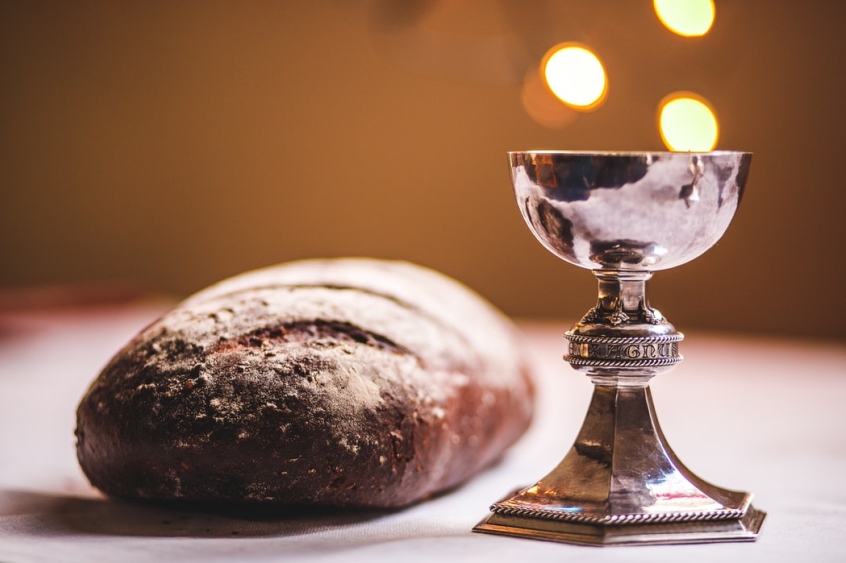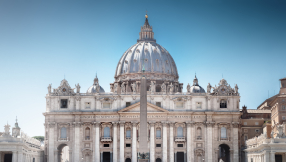
For the Catholic Church in the US, the past few decades have not been good. Thousands have deserted the pews already out of disgust at paedophile priests, cover ups and other manifestations of gross hypocrisy.
Bishops for years kept themselves busy moving paedophile priests from parish to parish, diocese to diocese – all the while, presumably, allowing these priests who raped little boys and girls to receive communion.
At the same time, countless lay Catholics have been denied access to the Eucharist for "sins" such as remarrying after divorcing an abusive or adulterous spouse.
One now-notorious US priest, when challenged on the chasm between the response to paedophilia and abortion, stated: "Paedophilia doesn't kill anyone and this does."
Capital punishment does kill people in the US, to this day. But so far, there has been no move to deny access to communion for any Catholic politician who supports capital punishment.
It is difficult to see the decision of the US bishops this week to move forward with drafting a document that would in effective seek to penalise President Joe Biden for his support for the right to choose on abortion, as anything other than a political intervention.
Biden, only the second Catholic in history to be elected President, is a committed Mass attender, devout and a dedicated family man who has suffered unspeakable losses in his life that his faith has helped him to cope with.
Personally, Biden is in fact opposed to abortion. However, where he once opposed federal funding for abortion procedures, a couple of years ago he changed his mind on this crucial issue.
Pope Francis, who has described abortion as "hiring a hitman to resolve a problem", nevertheless made some pointed comments about the communion in his Angelus at the start of June. He said: "When we receive the Eucharist, Jesus does the same with us: he knows us; he knows we are sinners; and he knows we make many mistakes, but he does not give up on joining his life to ours. He knows that we need it, because the Eucharist is not the reward of saints, no, it is the bread of sinners. This is why he exhorts us: 'Do not be afraid! Take and eat'."
Cardinal Wilton Gregory, Archbishop of Washington, has said consistently that he will not deny Biden the Eucharist, whatever his fellow Catholic bishops decide. He does not deny that Biden's view is a problem for the Church, but in accord with what Pope Francis has also said, insists the right approach is dialogue, not exclusion.
The response to yesterday's vote on social media has been excoriating.
The award-winning playwright, journalist and author, Wajahat Ali, said: "US Catholic Church doing everything it can to make people leave the Church. Interesting marketing strategy."
Comedian and actor John Fugelsang was among those who noted the absence of documents condemning Catholics who receive communion while supporting "covering up child rape", "turning away refugees" and "drone assassinations".
CNN commentator Keith Boykin asked: "Did the US Catholic bishops criticise Trump's Catholic attorney general Bill Barr when he authorised more executions than any administration in 120 years? Or maybe they were too busy eating pancakes last year at the National Catholic Prayer Breakfast, which gave Barr an award."
Many accused the bishops of "weaponising" the Eucharist. Critics charged the Catholic Church with straying into politics, meaning it should lose its tax exempt status. Questions around Biden's own First Amendment rights to freedom of speech and religion were also raised.
And this side of the pond, former spin doctor Alastair Campbell, credited with the famous "We don't do God" quote of the former prime minister Tony Blair - who only became a Catholic after leaving office - tweeted: "US Catholic bishops want to prevent @POTUS from taking communion on account of his liberal views on abortion. Imagine what they would think if he paid for one, had several children outside marriage, and wanted to have his third marriage in their most important church?"
Catholic leaders have in recent history arguably made some terrible mistakes. One was Paul VI's 1968 encyclical Humanae Vitae, which attempted to enforce a ban on artificial contraception. Cardinal Heenan, then Archbishop of Westminster, described it as "the greatest shock since the Reformation". The teaching is now widely ignored, by practising and non-practising Catholics, and regarded as misogynistic and illogical. Many left the Church and others see no reason to join or return.
Nevertheless, most Mass-going Catholics, while perhaps ambivalent about the Church's view on contraception, hold fast to the teaching "that human life must be respected and protected absolutely from the moment of conception". There can be no denying that the US bishops speak for many, possibly a majority, of practising Catholics in the US and maybe even worldwide when they seek to take a stand on abortion. So the issue is incredibly complex. None expects or even hopes the US bishops to suddenly come out in support of Roe v Wade.
The problem, though, is not that they oppose abortion - they should oppose abortion with all their souls. Rather, it is the divisive way they are making their stand, and the people they are targeting – not just Biden, but also practising Catholic Nancy Pelosi, who supports legal abortion.
In May, Cardinal Luis Ladaria, prefect of the Congregation for the Doctrine of the Faith (CDF), wrote to the Archbishop of Los Angeles José Gómez, president of the US bishops, warning that a national policy on abortion could become a "source of discord rather than unity within the episcopate".
His concerns, widely thought to reflect the views of Pope Francis himself, have been ignored by the majority of the US bishops.
At the G7 in Cornwall, quite a number of the leaders present, including it seems our own Boris Johnson, were Catholics. The governments they lead, in general, support liberal, secular laws on abortion. It is possible that others went to Mass on the Sunday they were here, but only Biden is known to have done so.
The actions of the US bishops in so determinedly targeting this man, in further undermining the magisterial credibility of their self-damaged Church, at a time when the world needs the teachings of Jesus Christ more than ever, are deeply regrettable. It is difficult to see how they can now go back, if even a warning from the once all powerful CDF can be so blithely ignored.
A change at depth, for any institution as well as for individuals, often has to be preceded by a "rock bottom".
So we can only pray, as we watch the US Catholic Church descend into unseemly acrimony and discord, that it is hastening towards its own spiritual rock bottom, and that this heralds some future, fundamental change. A change that will see a better, stronger Church emerge, one more focused on the mercy of Christ, and less on what the hierarchy deems itself fit to pass off as the judgement of God.
Ruth Gledhill is Online Editor of The Tablet, the Catholic international weekly journal that has been in existence since 1840.













